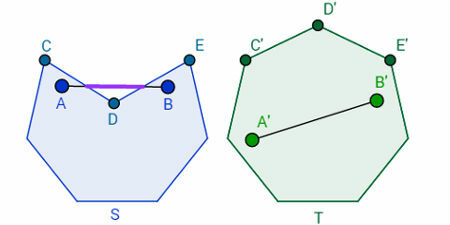The epic Iliad, written by Homer, describes one of the most famous wars developed in antiquity. More than the military report, the conflict draws attention due to its motivations, the attitudes taken by its most important characters and its incredible turnaround. Because of its rich narrative, many doubt the veracity of such a unique war. In general terms, all this doubt would be able to unravel the passion of Paris, the kidnapping of Helen, the feat of the participating heroes and the ingenious construction of the horse that determined the end of the combat.
Taken by all these questions, amateur archaeologist Heinrich Schilemann studied several texts by Homer in order to define the possible location of Troy. Carrying out several excavations on Mount Hissarlik, near the famous Dardanelles Strait, he eventually discovered a series of vases, jars and paraphernalia made of gold and silver. Looking at this material, he concluded that the artifacts were part of the Treasure of Priam, former Trojan king and father of Paris. As a result, the existence of Troy and the conflict gained significant support.
However, several historians went out into the field to review the theories and sources exposed by the German adventurer. Through new excavations in the same place, it was concluded that the artifacts found were obtained at different points in the region and that, therefore, they could not be part of Priam's treasure. Despite the mistake, the pioneering research carried out by Schilemann helped other researchers to discover that in that region there were several "Troies", one rebuilt on top of the old structures of the other, along the centuries.
New research revealed the existence of nine Troys, the first five being built in the early Bronze Age; Troy VI being part of the second half of the same Bronze Age; Troia VII would have been inhabited by a town that controlled the region until the year of 700 a. Ç.. Soon after, Troy VIII and, finally, the Roman city of Ilium Novum, which would correspond to the latest version of the legendary urban center. In general, the different cities were identified by the different types of ruins that accumulated each time, over time, the site was hit by fire or natural disaster.
Among these various cities discovered, the way was opened for further research that could determine which of those Troys was the one that truly experienced the combat described by Homer. Between 1932 and 1938, a group of North American researchers determined by analyzing the extension of Troia VII, that this would be the city that experienced the legendary war. Furthermore, the linguist Calvert Watkins revealed an ancient Hittite inscription that made mention of Ilinon's craggy rocks, also depicted in Homer's work.
Still, skeptics said that the cremation of Patroclus, partner of Achilles, described in the Iliad, would be another major inconsistency, since such a custom is not registered in this period. However, a recent survey by German archaeologists overturned this same argument when they discovered a series of remains of bodies that would have been cremated at the same time. If, on the one hand, such discoveries reinforce the existence of Troy, on the other, they fail to respond to the questioning of those who doubt the motivations and deeds that prevail in the narrative that tells us the war.
Currently, several scholars believe that Troy functioned as a trading post that connected the Greek cities found in the Black and Aegean seas. Naturally, they deduce that the dependence of the Greeks on the Trojans was a reason for the occurrence of small differences that eroded the political and commercial relationship between these peoples. Thus, the Greeks might carry out this invasion when the Trojans were weakened by some strife or natural disaster that could have instigated the development of the war.
We note that the determination of a verdict on the Trojan War as we know it can never be reached on secure bases. This is not to say that the flashy account of the Trojan War is dismissed as an invention devoid of any value. On the contrary, the verses of this poem attest to a unique way of reinventing, imagining and feeling. Undoubtedly, the construction formed by Homer's words configures a beautiful cultural legacy of ancient civilizations.
By Rainer Sousa
Graduated in History
Brazil School Team
Ancient Greece - wars - Brazil School
Source: Brazil School - https://brasilescola.uol.com.br/guerras/a-guerra-troia-aconteceu.htm


